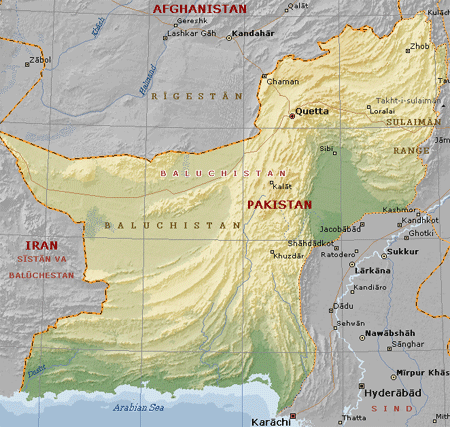By Muhammad Akbar Notezai
 In present scenario, of course, disgruntled Baloch youth is bristling with anger motto is the killing of their brethren brutally at the hands of establishment, which has alienated them from Islamabad.
In present scenario, of course, disgruntled Baloch youth is bristling with anger motto is the killing of their brethren brutally at the hands of establishment, which has alienated them from Islamabad.
They show aversion from any reconciliation process set up by the government because they have been betrayed many times. On one hand, government tries to negotiate with them, but on another hand, their ‘kill and dump’ policy is going on.
Unfortunately, abduction of youth, in Balochistan, is substantially increasing day by day, which has put their relatives behind the eight ball.They have been protesting against the abduction of their loved ones for years, but no one seems to resolve these manifold issues.
They are being shown stick usually to not stand for the fundamental rights of the Balochistans’ people, who despite living in mineral rich province, are bereft of basic necessities.
Undoubtedly, the corpses of Baloch youth is being thrown in abandoned areas of the Balochistan mercilessly by so called democratic government. If they have committed any crime, then they ought to be produced before court because court can only castigate them if they are blameworthy.
Recently, chief of PML-N Nawaz Sharif went to Karachi to meet veteran Baloch leader Sardar Attah Ullah Mengal who point blank criticized the army and entitled it ‘Punjabi army’. He further said, “The leadership is in the hands of youth, they don’t want to live in a country in which they received bodies of their brethren.” He further opined that the situation reached the point of no return.
Nawaz Sharif declared Sardar Attah Ullah Menagl’s allegations legitimate, and committed to negotiate with Baloch youth after coming in power, but many questions raise here: Will disgruntled Baloch youth negotiate with him? Will packages soothe the bereaved families of the ‘missing’ persons who tendered sacrifices for a great purpose? Will they be given their rights? It will definitely be a toughest task for him.
Subsequently, Nawaz Sharif met Talal Akbar Bugti (President of the Jamhoori Watan Party), he pledged him to give his father’s killers exemplary punishment, but he didn’t bother to ask about whereabouts of the bereaved families who are protesting for their relatives. It shows that PML-N chief merely gives priority to Baloch people for the coming election; unfortunately, he doesn’t want to pour oil on the troubled waters.
It is beyond comprehension that why is Imran Khan sympathetic to Baloch people? Does it mean that he has the support of the establishment? Well, he may have, because without support of the establishment none of them can rule in the country. That is why he discusses Balochistan’s concerns in his rallies because establishment may bring him to soothe Baloch people, especially the disgruntled Baloch youth, but they can not be tricked this time.
In fact, Imran Khan has become the leader of the turn courts who have enjoyed government with PPP, PML-Q and PML-N as well as has been the part of the military operations in Balochistan. PTI’s chief, with them, can never resolve the situation of the Balochistan.
Many of the political parties after coming in power, apologized Baloch people, then they became brutal to them. Imran Khan is going to follow their foot steps.
But Baloch people, especially Baloch youth is well acquainted with their policies that at first they apologize and then start suppressing them. Its instance is the Ex-General Parvez Musharraf’s regime and PPP’s government.
Ex General Parvez Musharraf apologized, and then launched fifth military operation in Balochistan which is still going on.
On another side, PPP did same that president Asif Ali Zardari apologized, then throwing of mutilated corpses of Balochs started, is continued up till now.
All political parties seem to be puppet in the hands of establishment which has treated Balochs and Baloch youth very badly. They are even killing educated Balochs who are raising voice for the disappearance of their brethren; therefore, it is going to alienate them more and more from Islamabad.
The political leaders had better think for the Balochistani people, who are downtrodden. They need to take stern steps for removing their sense of deprivation, because through barrel of gun they can never be brought into national mainstream.










